Mali appoints transitional government
Earlier this week, the Economic Community of West African States (ECOWAS) and the African Union announced that they would lift sanctions—including trade and travel blockades—on Mali as the country announced its plans for a transitional government led by civilians. On Monday, interim President Bah Ndaw, himself a former army colonel and foreign minister, announced the West African country’s 25-person cabinet, of which four major posts—defense, security, territorial administration, and national reconciliation—will be held by military officials. Former Foreign Minister and Ambassador to the United Nations Moctar Ouane will join the government as transitional prime minister, satisfying a key condition posed by ECOWAS that the transitional government be led by a civilian. The transitional government is expected to hold elections within 18 months.
On Wednesday, October 7, Mali satisfied another ECOWAS demand by releasing former Prime Minister Boubou Cisse and other officials and military personnel that were detained during the coup in August. In related news, Mali released more than 100 jihadist prisoners last week in an apparent exchange for a politician and humanitarian aid workers who had been kidnapped by a jihadist group linked to al-Qaida. The politician, Soumaila Cisse, a three-time presidential candidate, had been campaigning for legislative elections in the region of Timbuktu when he was abducted in March 2020 and was reelected to his parliament seat while in captivity.
Somalia and the United States agree to debt relief deal
On September 27, 2020, Somali Minister of Finance Abdirahman Dualeh Beileh and U.S. Ambassador to Somalia Donald Yamamoto signed a bilateral agreement to reduce and restructure Somalia’s debts to three U.S. agencies. Fulfillment of the agreement, which requires Somalia to continue enacting economic reforms in order to qualify for debt relief, will result in the forgiveness of more than $1 billion of debt. The agreement follows moves by the International Monetary Fund (IMF) and World Bank earlier this year to qualify Somalia for debt relief that will lower the country’s $5.2 billion in external debt to around $550 million. These agreements with the IMF, World Bank, and U.S. are the result of intense economic reform efforts undertaken by Somalia over the past eight years in order to qualify for debt relief under the Heavily Indebted Poor Countries Initiative.
Togo names first female prime minister and new government
In late September, Togo’s prime minister and government resigned in a political reshuffle that had been expected since the reelection of President Faure Gnassingbé in February, but which was delayed due to the COVID-19 pandemic. In a statement published online, the president accepted the resignation of Prime Minister Komi Selom Klassou, who had served as prime minister since 2015, and congratulated him and his team for their work.
After the resignation, Gnassingbé appointed Victoire Tomegah Dogbe to the position of prime minister. The appointment makes Dogbe—who has served in several positions under Gnassingbé’s government in previous terms, including as chief of staff and minister for youth and grassroots development—the first woman to hold the position of prime minister in Togo. On October 2, Dogbe then appointed a new government with a record 30 percent of 33 ministerial positions given to women, including the country’s first female defense minister. The government will now be tasked to respond to COVID-19 and to boost economic growth, which had slowed even prior to the pandemic, among other priorities.
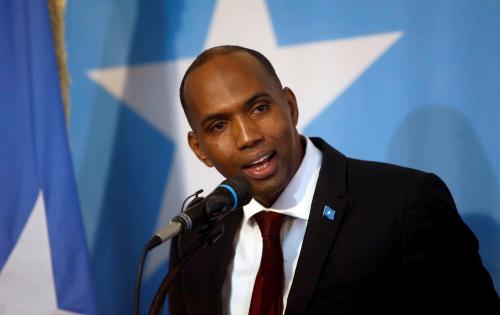
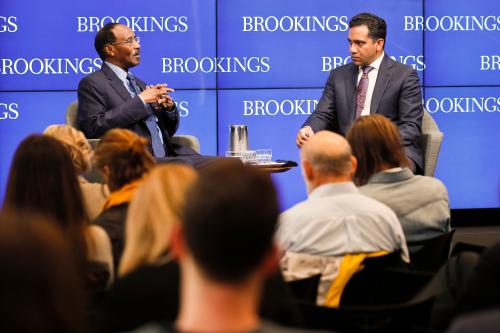
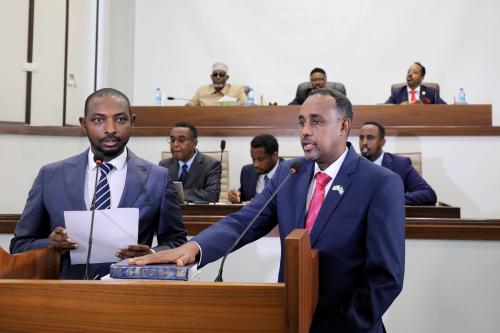


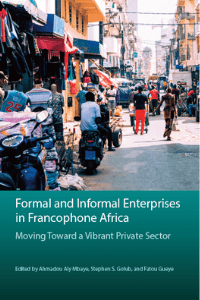

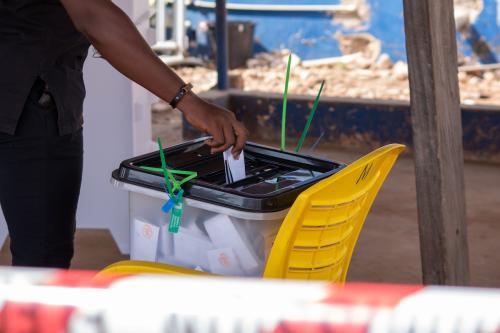

Commentary
Africa in the news: Mali’s transitional government, Somalia’s debt relief, and Togo’s first female prime minister
October 10, 2020